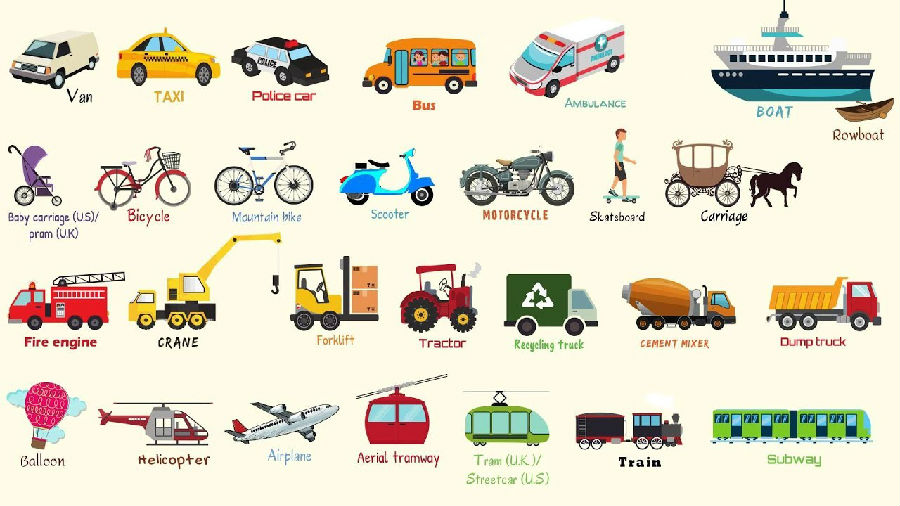A BACKWARD LOOK
内容回顾
Airplanes, radios, dog-teams, horses, trains—we have read about all these ways of carrying men or sending messages.
飞机、收音机、狗队、马、火车,我们已经读了所有这些关于客运和通信的方式。
We perhaps understand a little better how man has made the world smaller.
我们也许能更好地理解人类是如何把世界变得更小的。
There are other ways, too.
当然,世界上还有其他的运输通信方式。
Make a list of all the ways men send messages.
列举出人们所有的通信方式。
Make another list of the ways they travel.
列举出人们其他的出行方式。
Write down the different ways you have traveled and sent messages.
写出你所使用的所有的出行与通信方式。
Your class might like to gather pictures of ways of traveling and sending messages.
可以发动班里的同学收集关于运输通信方式的图片,
These pictures could be put on a bulletin board.
然后把这些图片贴在公告板上。
There was a time when traveling almost always meant danger—danger from wild animals, from cold and hunger and thirst, from savage people.
曾几何时,旅行几乎总是意味着危险——来自野生动物的危险,来自寒冷、饥饿和干渴的危险,来自野蛮人的危险。
Now in most parts of the world we travel in comfort and safety, and our messages speed on their way to our friends.
如今,我们可以在世界上大部分地区舒适安全地旅行;我们也能够以更快的速度将信息传递给我们的朋友。
But there are still parts of the world where travel is hard, and where men wait days and even weeks for news they are eager to get.
但是,世界上仍然存在一部分出行困难的地区,在那里,人们要等上数天甚至数周才能收到自己渴望的消息。
Name five places where this is true.
列举出5个这样的地方。
One of the stories in this Part tells you of such a place.
本部分的其中一则故事就向你展示了这样一个地方。
The four stories you have just read are only a few of many just as interesting.
你读过的这4篇故事只是很多精彩故事的一小部分。
Did they show you how progress in transportation and communication makes the world grow smaller?
你有没有从故事中看出运输和通信的进步使得世界越来越小了呢?
Men have dug canals for boats,
人们挖运河开船;
strung thousands of miles of wire for messages,
为了传递信息铺设了千万英里的电缆;
built roads over and through mountains for trains and automobiles,
翻山越岭为火车、汽车修建道路;
and spent long hours of patient work to invent the radio and the airplane.
花费大量的时间与耐心的工作发明出无线电和飞机。
Many books have been written about these men.
关于这些人有很多书。













